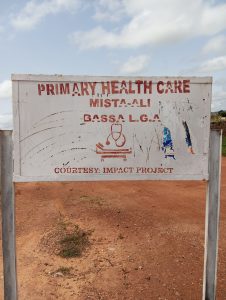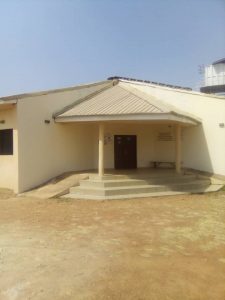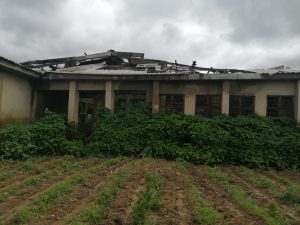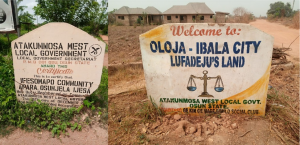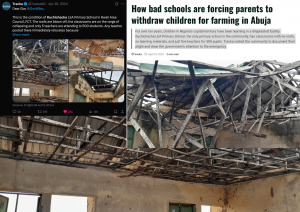“One day, we were delivering a baby in the labour room, and during the delivery, we heard gboa! A football landed right in the middle of the room through the window.”
Those were the words of a nurse at the Unguwan Maichibi Primary Health Centre, Kaduna South LGA, in Kaduna in October 2021.
The major part of the building had no roof, windows or proper fencing. The community head, Mr Yakubu Batuk, said the facility had been like that for over five years with no intervention from the government.

The children’s and female wards were dilapidated and locked, and all patients were treated in the two manageable rooms. When we spoke to the staff, they were embittered. They were spending out-of-pocket to treat patients due to a lack of medical equipment.
“We spend our money to get drugs and some equipment like syringes, gloves and so on. Some patients who come here don’t have any money, and charging them can be like wickedness because where will they get the money from, and the government does not provide so we have to do it ourselves.” a nurse told Tracka.

During September – October 2021, our team visited twenty-five primary health centres across Kano, Kaduna, and Niger states.
We were conducting field research to review the condition of primary healthcare in these states to examine and provide deeper insights on how the condition of these facilities affects and translates to higher or lower life expectancy for citizens.
We combined qualitative analysis, stories, charts, and infographics to present the report.
Afterwards, we engaged the state governments, the state primary healthcare development agencies and other necessary stakeholders on our findings and gave recommendations. You can find a copy of the report HERE.
Another staff, who is a volunteer, lamented the stress and insecurity they all face on the job.
“We don’t usually admit patients overnight unless one of us agrees to take the risk. This place is not safe, and there is no fence or gate at the back. Thugs attacked this place one time and stole some equipment, so since then, everyone has been very careful.”
In March 2022, the matron of the centre called our project tracking officer to inform us that the government had mobilized workers to the centre. Three months later, we visited, and the centre had been fully renovated with medical equipment, and drugs supplied.

The matron of the hospital spoke to us about the renovation.
“Today, we have a new hospital with beds and medical equipment, and our work and treatment have improved.
Before, we used to attend to like 40 patients in a month, but now we attend to more than 100 people in a month, plus pregnant women and children. We admit patients now because there is a fence and gate so staff can stay overnight without fear.” she said.


The community leader Yakubu Batuk was happy about the development.
“My people are very happy about the renovation of the health centre. This is something we have been crying to the government to do for over five years, but less than four months after you visited us, they did everything for us.
Many people are now going to the centre because it looks very good from the outside; some people even say it is better than some private hospitals around. Over 12,000 people in this community now have a new hope. We thank you for your help.” he said.
When we spoke to a community resident, Mrs Mary John, she spoke about her recent experience at the centre.

“I took my son to the centre last month and was surprised at the change. Everything is now better. Though I know the staff used to try their best for us before even when it was bad, now everything has become better. They even gave us drugs for free. We are very happy.” she said.
We commend the Kaduna state government and Senator Uba Sani representing Kaduna Central Senatorial district, for their swift response to the plight of the people of the Television community.
We urge the state government and the other health stakeholders to replicate the same action across the other dilapidated primary healthcare facilities in the state to enable citizens to access quality healthcare at the community level.
Story by Ayomide Ladipo & Bright Osula.

